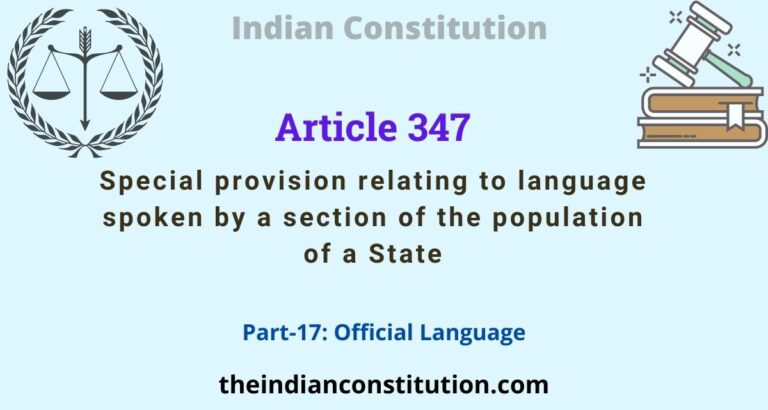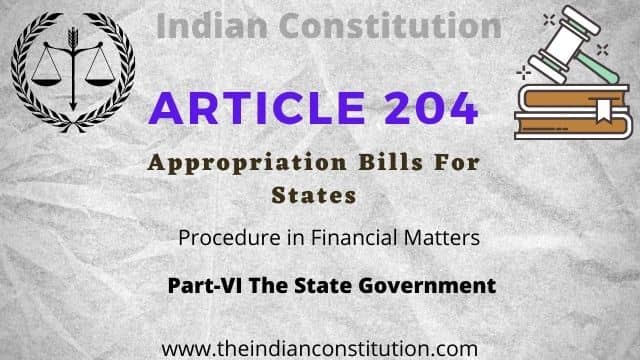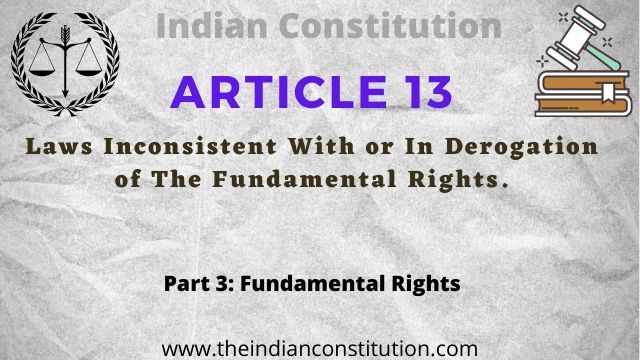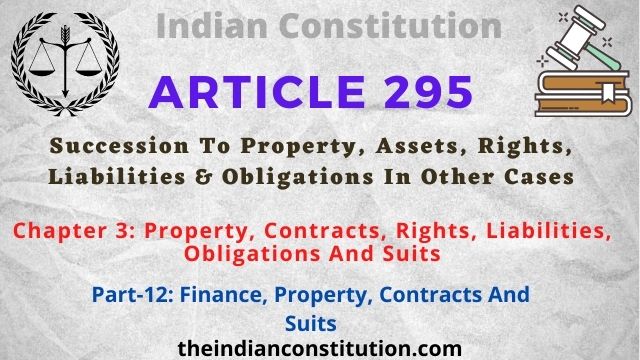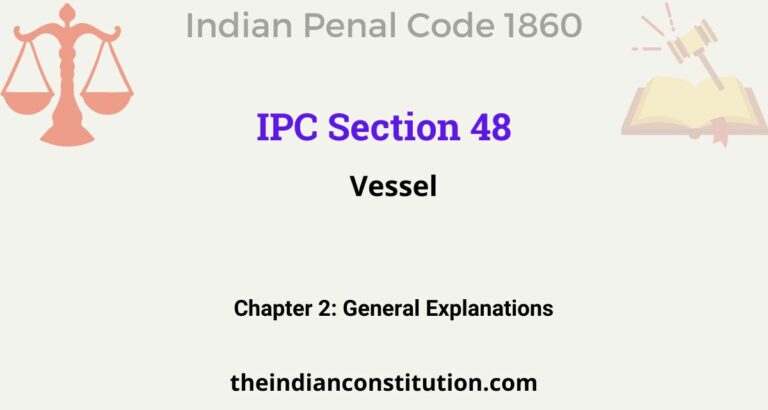Article 19 Right To Freedom of Speech In The Indian Constitution
Article 19 is said to be the foundation of democratic rule in India. However, none of the freedoms are absolute and they can all be curtailed by imposing some reasonable restriction.
The place of right to individual freedom is considered supreme among the basic rights. A scholar has rightly said that “freedom is life”, because it is not possible for a human being to develop his personality in the absence of this right.
In Articles 19 to Article 22 of the Indian Constitution, the citizens of India have been given various rights related to freedom. These four articles are in the form of the Charter of Physical Freedom.
Article 19: Protection of Certain Rights Regarding Freedom of Speech, etc
19(1): All citizens shall have the right—
(a) to freedom of speech and expression;
(b) to assemble peaceably and without arms;
(c) to form associations or unions [or co-operative societies];[97th Constitutional Amendment 2011]
(d) to move freely throughout the territory of India;
(e) to reside and settle in any part of the territory of India; and
(f) * * * * * Omitted………Right to Property [44th Constitutional Amendment 1978]
(g) to practise any profession, or to carry on any occupation, trade or business.
19(2): Nothing in sub-clause (a) of clause (1) shall affect the operation of any existing law, or prevent the State from making any law, in so far as such law imposes reasonable restrictions on the exercise of the right conferred by the said sub-clause in the interests of the sovereignty and integrity of India, the security of the State, friendly relations with foreign States, public order, decency or morality, or in relation to contempt of court, defamation or incitement to an offence. [First Constitutional Amendment 1951, 16th Constitutional Amendment 1963]
19(3): Nothing in sub-clause (b) of the said clause shall affect the operation of any existing law in so far as it imposes, or prevent the State from making any law imposing, in the interests of the sovereignty and integrity of India or public order, reasonable restrictions on the exercise of the right conferred by the said sub-clause. [16th Constitutional Amendment 1963]
19(4): Nothing in sub-clause (c) of the said clause shall affect the operation of any existing law in so far as it imposes, or prevent the State from making any law imposing, in the interests of the sovereignty and integrity of India or public order or morality, reasonable restrictions on the exercise of the right conferred by the said sub-clause. [16th Constitutional Amendment 1963]
19(5): Nothing in [sub-clauses (d) and (e)] of the said clause shall affect the operation of any existing law in so far as it imposes, or prevent the State from making any law imposing, reasonable restrictions on the exercise of any of the rights conferred by the said sub-clauses either in the interests of the general public or for the protection of the interests of any Scheduled Tribe. [44th Constitutional Amendment 1978]
19(6): Nothing in sub-clause (g) of the said clause shall affect the operation of any existing law in so far as it imposes, or prevent the State from making any law imposing, in the interests of the general public, reasonable restrictions on the exercise of the right conferred by the said sub-clause, and, in particular, nothing in the said sub-clause shall affect the operation of any existing law in so far as it relates to, or prevent the State from making any law relating to,—
(i) the professional or technical qualifications necessary for practising any profession or carrying on any occupation, trade or business, or
(ii) the carrying on by the State, or by a corporation owned or controlled by the State, of any trade, business, industry or service, whether to the exclusion, complete or partial, of citizens or otherwise. [First Constitutional Amendment 1951]
-Text in Constitution
Explanation of Article 19
Article 19 mostly have two part
1. Rights for citizen and
2. Power to state for reasonable restriction.
Originally(1949 Constitution), Article 19 contained seven rights. But, the right to acquire, hold and dispose of the property was deleted by the 44th Amendment Act of 1978. These six rights are protected against only state action and not private individuals.
Moreover, these rights are available only to the citizens and to shareholders of a company but not to foreigners or legal persons like companies or corporations, etc.
Article 19 not guarantee absolute freedom. The state can impose ‘reasonable’ restrictions on the enjoyment of these six rights only on the grounds mentioned in Article 19 itself and not on any other grounds.
Reasonable restrictions can be imposed only by the authority of law and not only by executive action.
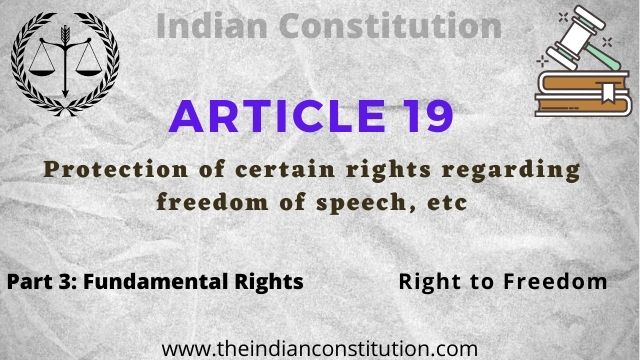
Article 19(1)(a): Freedom of Speech And Expression
Freedom of speech and expression means expressing your thoughts in words, articles, printing, signs or any other way.
The word ‘expression’ used in Article 19 greatly expands its field. All the mediums for expressing ideas come under expression.
Article 19(1)(a) cover mainly three type of rights for citizen.
(1) Right to receive information
(a) Right to Know about government activities.
Example:
Right To Information Act 2005
(2) Right to express their own idea and thoughts.
(a) Right to propagate one’s views as well as views of others.
(b) Freedom of the press
(c) Freedom to commercial advertisements.
(d) Right to telecast, that is, the government has no monopoly on electronic media.
(e) Right against bundh called by a political party or organization.
(f) Freedom of silence
(g) Right against imposition of pre-censorship on a newspaper.
(h) Right to demonstration of picketing but not right to strike.
(i) Right to hoist national flag
Recently Section 377 of IPC nullified, decriminalization of Homosexuality, Navtej Singh Johar Vs UOI case
(3) Right to keep secret any communication as secret.
(a) Right against tapping of telephonic conversation.
Recent judgment of SC to make the Right to Privacy as a Fundamental Right
Freedom of speech and expression is the cornerstone of democratic governance. Every democratic government gives great importance to this freedom.
Without this, it is not possible to develop the logical and critical power of the people, which is necessary for the proper operation of democratic government.
Article 19(2): Restriction on Speech And Expression
By following Article19(2) the state can impose reasonable 8 restrictions on the exercise of freedom and expression.
- The sovereignty and integrity of India [Added by 16th Constitutional Amendment 1963]
- The security of the State
- Friendly relations with foreign states (Not for Pakistan)
- Public order
- Decency or morality
- In relation to contempt of court, (Can do by law)
- Defamation and
- Incitement to an offense.
Article 19(1)(b): Right To Assemble
Every citizen has the right to assemble peaceably and without arms. It includes the right to hold public meetings, demonstrations and take out processions.
This freedom can be exercised only on public land and the assembly must be peaceful and unarmed.
This provision does not protect violent, disorderly, riotous assemblies, or one that causes breach of public peace or one that involves arms. This right does not include the right to strike.
Article 19(3): Restriction on Assemble
The State can impose reasonable restrictions on the exercise of right of assembly on two grounds.
- sovereignty and integrity of India
- public order (including the maintenance of traffic in the area concerned)
Other restriction in IPC
Under Section 144 of the Criminal Procedure Code (1973), a magistrate can restrain an assembly, meeting, or procession if
- There is a risk of obstruction,
- Annoyance or danger to human life,
- Health
- Safety
- Disturbance of the public tranquility
- A riot or any affray.
Under Section 141 of the Indian Penal Code, as an assembly of five or more persons becomes unlawful if the object is
- to resist the execution of any law or legal process;
- to forcibly occupy the property of some person;
- to commit any mischief or criminal trespass;
- to force some person to do an illegal act; and
- to threaten the government or its officials on exercising lawful powers.
Caste Rallies: Lucknow bench of Allahabad HC in 2013 has banned caste rallies on the ground that they disturb public order and creates animosity between castes. This order is being contested as it seems to violate Article19(1)(b).
Article 19(1)(c): Right of Association
All citizens have the right to form associations or unions or co-operative societies(Added by 97th Amendment 2011).
It includes the right to form political parties, companies, partnership firms, societies, clubs, organizations, trade unions, or anybody of persons.
It not only includes the right to start an association or union but also to continue with the association or union as such. Further, it covers the negative right of not to form or join an association or union.
Example: Chambers of Commerce and Industry, All India Trade Union Congress(AITUC), Indian Coffee House etc.
Right to Strike in case of Government Officials
Trade Unions have the right to strike under certain circumstances in the Industrial Disputes Act.
However, for the government officials, SC has held that right to strike is available only as a last resort, when all other channels of communication have failed.
However, it can not be deemed to be coming under the cover of Fundamental Rights.
Hence, the government can invoke the Essential Services Maintenance Act in such situations and forced to call off the strike.
SC in T.K. Rangarajan vs. State of Tamil Nadu held that government officials don’t have the fundamental right to strike.
Article 19(4): Restriction on Association
Reasonable restrictions can be imposed on the exercise of this right by the State on the grounds of
- sovereignty and integrity of India
- public order
- morality
Subject to these restrictions, the citizens have complete liberty to form associations or unions for pursuing lawful objectives and purposes.
However, the right to obtain recognition of the association is not a fundamental right.
The Supreme Court held that the trade unions have no guaranteed right to effective bargaining or right to strike or right to declare a lock-out.
The right to strike can be controlled by appropriate industrial law.
Article 19(1)(d): Freedom of Movement
This freedom entitles every citizen to move freely throughout the territory of the country. He can move freely from one state to another or from one place to another within a state.
This right underlines the idea that India is one unit so far as the citizens are concerned. Thus, the purpose is to promote national feeling and not parochialism.
Article 19(1)(e): Freedom of Resident
Every citizen has the right to reside and settle in any part of the territory of the country.
This right has two parts:
- The right to reside in any part of the country, which means to stay at any place temporarily, and
- The right to settle in any part of the country, which means to set up a home or domicile at any place permanently
This right is intended to remove internal barriers within the country or between any of its parts. This promotes nationalism and avoids narrow mindedness.
Article 19(5): Restriction on Movement And Resident
The grounds of imposing reasonable restrictions on those freedom are two, namely,
- Interests of the general public and
- Protection of interests of any scheduled tribe.
Other derived restriction
- Public health
- In the interest of Public Moral
- For safety reasons, helmets can be prescribed for two-wheeler riders.
- Externment orders against citizens to leave the territory of a state if he is an anti-social element. For example, a person can be extended from a state if he is an intimidating witness in a case.
The entry of outsiders in tribal areas is restricted to protect the distinctive culture, language, customs, and manners of scheduled tribes and to safeguard their traditional vocation and properties against exploitation.
The Supreme Court held that the freedom of movement of prostitutes can be restricted on the ground of public health and in the interest of public morals.
The Bombay High Court validated the restrictions on the movement of persons affected by AIDS.
The freedom of movement has two dimensions, one internal (right to move inside the country) and the second external (right to move out of the country and the right to come back to the country).
Article 19 protects only the first dimension internal movement. The second dimension is dealt by Article 21 (right to life and personal liberty).
From the above, it is clear that the right to residence and the right to movement are overlapping to some extent. Both are complementary to each other.
Article 19(1)(f): Property Right
Removed by 44th Constitutional Amendment 1978, and add as constitutional right in Article 300A.
Article 19(1)(g): Freedom of Profession
All citizens are given the right to practice any profession or to carry on any occupation, trade, or business. This right is very wide as it covers all the means of earning one’s livelihood.
Article19(6): Restriction on Profession
The State can impose reasonable restrictions on the exercise of this right in the interest of the general public. Further, the State is empowered to:
- Prescribe professional or technical qualifications necessary for practicing any profession or carrying on any occupation, trade, or business;(Like for Coaching teacher B.ed degree must)
- Carry on by itself any trade, business, industry, or service whether to the exclusion (complete or partial) of citizens or otherwise.
- For food security, traders may be asked to sell a commodity at a certain price
- Betting and gambling are not part of trade and hence can be restricted or banned
- It can be restricted in the interest of public morality and social health. Example: prostitution
Note: Right to start the business does not give the right to close the business, Example- If bank want to close their service they take permission from government because it affect economy.
Thus, no objection can be made when the State carries on a trade, business, industry or service either as a monopoly (complete or partial) to the exclusion of citizens (all or some only) or in competition with any citizen. The State is not required to justify its monopoly.
Example: Bank Nationalization 1969, Space mission only by ISRO, Railway Operation, Nuclear Power etc…
This right does not include the right to carry on a profession or business or trade or occupation that is immoral (trafficking in women or children) or dangerous (harmful drugs or explosives, etc,).
The State can absolutely prohibit these or regulate the through licensing.
# Impact of National Emergency on the Rights under Article 19
Article 19 is suspended automatically if the proclamation is on the ground of external aggression, and remains so, as long as emergency is in operation.
However, after the 44th Amendment, it cannot be suspended if the emergency is declared on the grounds of armed rebellion.
Also Read:
